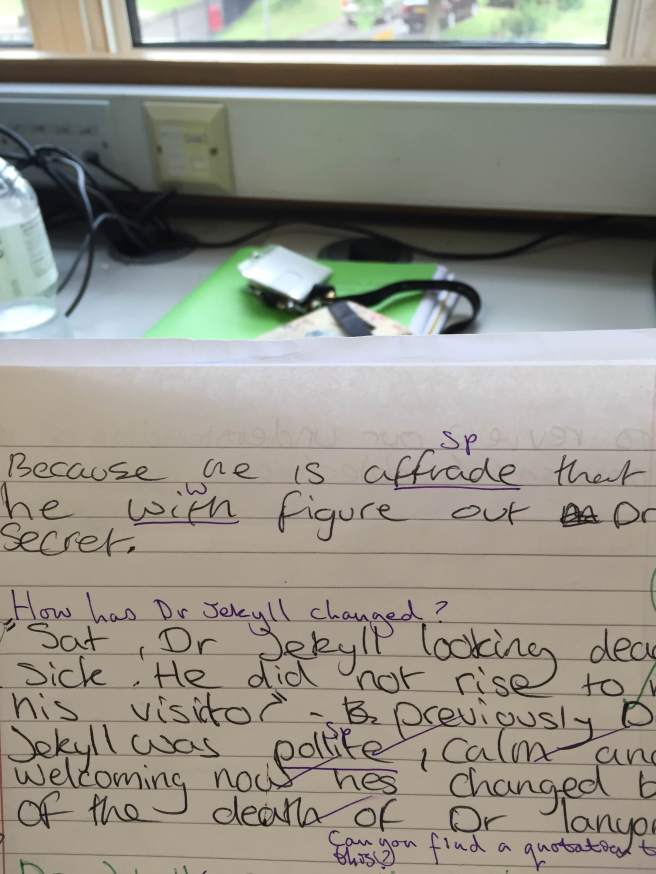Achieving growth mindset through specific and directed praise
As a group of NQT’s at a mixed, state school in North London, we are keen to improve our classroom practice in order to become better teachers. We each conducted a research project centred around school-wide issues which we thought would increase growth mindset in a hope to raise attainment.
Statement of intent:
- Tackling the behaviour and attainment of disengaged KS3 boys through specific and directed praise.
- Encouraging KS4 boys to become confident, independent learners through specific and directed praise.
Baseline:
In two humanities subjects, History and RE, there was a pattern poor behaviour seen with disengaged KS3 boys as a result of a lack of confidence in their own abilities. This resulted in it taking the boys a long time to settle, low level disruptive behaviour and an unwillingness to attempt tasks. The consequence of this was the boys being removed from lessons.
In English, a pattern was found in KS4 boys where a lack of confidence in their own abilities was regularly resulting in an inability to attempt independent work and too much reliance on asking for teacher support.
What did we do?
There were several different and interlinked strategies we implemented in order to tackle behaviour and low confidence. One of the initial strategies we tried was meeting arranging meetings with colleagues where similar patterns of concern were identified and the students in question to incorporate staged interventions.
Strategies in class
We used specific and directed praise to address their lack of attainment in class. By doing this, we showed the students that their needs and attainment were at the forefront of our high expectations and belief in them. Secondly, within our own teaching we ensured that we used verbal praise for effort when a task or question was attempted. In order to identify the impact we had meetings with form tutors to discuss whether strategies were having a noticeable effect and whether students felt more confident.
In KS4 lessons, guided learning sessions and individualised written feedback with specific positives based on the assessment objectives allowed students to build on progress independently.
Sharing praise and positive reinforcement
Other interventions used were positive phone calls home; these were used as an incentive and reward for increased effort, completed work and improvement in behaviour. Whilst the students were presented with the opportunity for phone calls at the beginning of the lesson, these chances remained or decreased dependant on behaviour, this added a competitive element and provided a constant reminder of our expectations. Additionally in RE, the students were informed that there would be a number of positive postcards sent home at the end of the day as a reward for effort, completed work and good behaviour. As the lesson progressed, students would be informed of how many postcards had already been written and positive names would be called out at the end. At the end of every term, rewards assemblies were used to commemorate exceptional efforts. These assemblies increased students pride and the receiving of a certificate from the head teacher cemented their progress. This increased communication with home provided an all-encompassing narrative of progress.
We made use of form diaries to allow class teachers and form tutors to work together to praise positive outcomes and remind students of expectations. When a student demonstrated particular progress, we also sent emails detailing that to their form tutors and Heads of Year to further celebrate that pupil’s achievement and effort.
Outcomes
A range of desired outcomes were achieved through the above strategies. In attempting to increased students confidence, it was noticed that as a result of the interventions students started to voluntarily attempt to answer questions in class and engage in class discussions. In addition to this, students feel comfortable to critically evaluate and build upon their own work in order to improve the standard of it; this increased their understanding of what high quality work is and their desire to achieve it and therefore their levels and grades overall improved.
Another way progress has been made is through using the above intervention to improve behaviour. As behaviour slowly improved, students spent more time in class and less time on faculty support. Within the lesson, students were less disruptive and more focussed on work. This meant that progress was made for all students as there was more fluidity in the teaching, a quieter environment for concentration and fewer interruptions.
Unexpected and positive outcomes
As well as our desired outcomes, we were lucky to achieve a number of unexpected yet positive outcomes. One key outcome was an increased in the girls’ confidence. The girls became more vocal in class as a result of boys being more focussed. This enabled positive relationships with higher ability students to be developed, allowing them the time to cement their understanding and have higher attainment. These positive relationships across the board allowed for a deeper understanding to be developed and a more positive classroom environment where all students felt valued, leading to an increased enjoyment of the subject.



